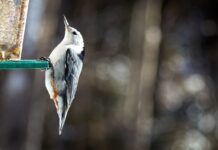What’s all the buzz about on my dinner plate? Mixed nuts, sweet fruits, pumpkin pie, ice cream and all things tasty. Yes, this time of the year is tempting for my taste buds. Although I’m not fond of coffee and those that know me well can tell you I don’t eat a huge variety of vegetables, I do like a select few. But I wouldn’t be able to enjoy all of these wonderful things if it wasn’t for our wonderful pollinators.
One out of every three bites of our food is created with the help of pollinators. As a matter of fact, from apples and squash, to almonds and coffee, bees are responsible for pollinating most of the fruits, vegetables, seeds and nuts that are essential to our diets.
Honey bees in particular play a huge role in agriculture, contributing over $15 billion to the value of US crop production.
And if you are wondering how I figured ice cream into the equation, well, you see I happen to know dairy cows consume alfalfa. Alfalfa is considered the premier forage for dairy cows, making it an essential component of milk, yogurt, ice cream, and cheese.
This cowgirl happens to like alfalfa to feed to horses. But, nevertheless, if it wasn’t for the little buzzing bees helping to pollinate alfalfa and nearly 130 types of fruits and vegetables, we would all be a bit “grinchy” this holiday season.
The forgotten farmer
Sadly, pollinator populations have dropped alarmingly in the past 30 years. Bees are experiencing massive die-offs throughout the U.S. and Canada. In 2017, the rusty-patched bumblebee was the first bee added to the endangered species list in the continental United States.
So, what happened? In 2007, honey bees began disappearing. Beekeepers across the US lost many of their honey bee colonies. Colony collapse disorder brought the spotlight on to the importance of pollinators, the human impact on their health, and the consequences of their potential loss.
Multiple factors contribute to honey bee colony loss such as diseases, parasites, pesticides (particularly neonicotinoids), long-distance transportation of colonies, winter survival rates, limited floral resources and even climate change.
If we don’t pay attention and realize that the bees are as valuable as the food they help pollinate, and the livestock they help feed, then it will be too late. The pollinator bees are the most important farmer, yet they are the most forgotten farmer and they need our help.
Bee the solution
As we snack on nuts, put honey in our drinks, eat our fruit and vegetable trays and sip on coffee, remember the bees! Think about how you can be the solution to saving our pollinators.
In this time of gift giving, give a gift back to nature. There are more than 4,000 bee species around the United States and we can all make a difference through our efforts. We can always do more, but at least do this, pick one thing to make a change.
Here are 10 ways you can help save the bees:
1. Plant a bee garden;
2. Go chemical-free for bees;
3. Become a citizen scientist;
4. Provide trees for bees;
5. Create a bee bath;
6. Build homes for native bees;
7. Give beehives and native bees homes;
8. Teach tomorrow’s bee stewards;
9. Host a fundraiser;
10. Support local beekeepers and organizations.
This list was taken from thebeeconservancy.org/10-ways-to-save-the-bees/ and I encourage anyone interested to visit this website for further information.
As we spend more time inside and pass the winter blues away, perhaps we can reflect on how blessed we have been, and know there is hope that we can make a positive change to benefit our ecological and agricultural sector. And if you feel your actions won’t matter, remember this: “Anyone that feels they are too small to make a difference, has never met the honey bee.” I hope you will bee inspired!














It’s honestly so devastating to know that over the past 30 years, pollinator numbers have decreased dramatically. As you said, there are widespread die-offs of bees in the United States and Canada. I hope people can acknowledge this and help save the bees by calling a honey bee relocation specialist if they ever encounter a hive.